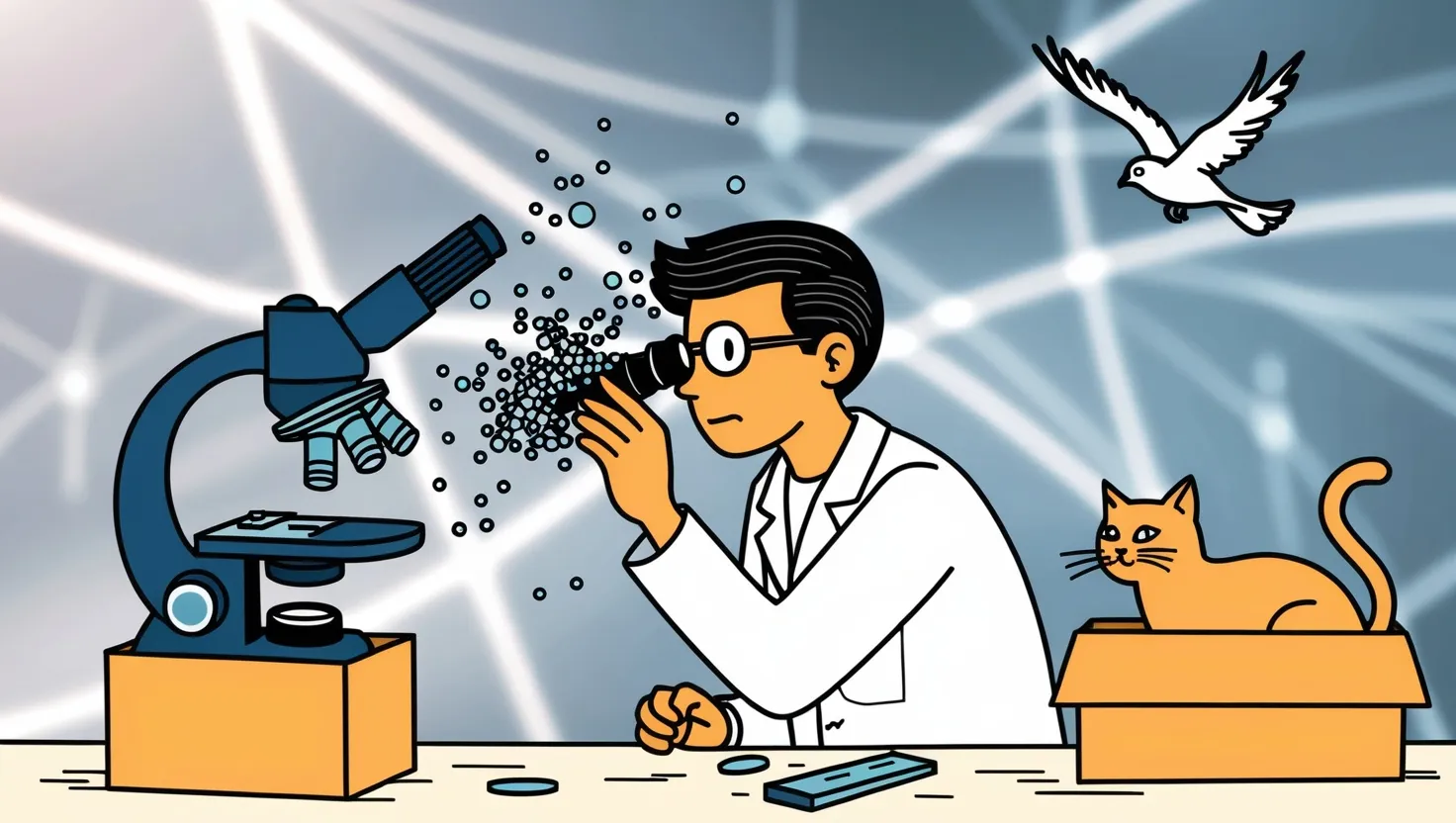Imagine walking into a hospital room where a grown woman, who spent decades eating strawberries with joy, suddenly gasps for air at the mere scent of the fruit. This isn’t a hypothetical. Sudden adult-onset allergies can transform everyday pleasures into threats overnight. You may wonder—how does someone with no previous warning one day become seriously allergic to a food or medication they’ve tolerated all their life? Science can describe the cascade of immune cells and histamines, but the trigger that flips this biological switch remains distant. In some cases, no amount of testing flickers even a hint at the instigator. One theory links the rise in adult-onset allergies to silent, cumulative environmental exposures, while others look to viral infections that may subtly rewire the immune response without us even noticing. Our bodies, it seems, sometimes quietly edit their instruction manuals without ever leaving a paper trail.
“Science is the great antidote to the poison of enthusiasm and superstition.” — Adam Smith
But what happens when recovery itself becomes a source of suffering? Chronic post-treatment pain syndromes are classic examples of this paradox. Imagine a patient who beats an infection or recovers from surgery but finds themselves trapped in relentless pain for weeks or even years after. X-rays are clear, wounds are healed, yet nerves fire off alarms as if they were still in mortal danger. Pain, in these cases, becomes more than a signal—it becomes a mystery unraveled only partly by science. Some believe these cases arise when the body’s alarm system stays hypervigilant, trained by trauma to remain on guard, but why some people’s alarms reset while others persist is unknown. You might ask, does our psyche shape these experiences? Can a memory of pain, rather than the injury itself, rewire the nervous system so thoroughly? Every specialist I’ve encountered has their own suspicions, but hard evidence stays just out of reach.
“Medicine is a science of uncertainty and an art of probability.” — William Osler
Then there’s the mind itself, capable of extraordinary feats and, sometimes, extraordinary lapses—like in transient global amnesia. Picture someone who, in the middle of a normal day, loses all memory of what just happened. They can recount their childhood in vivid detail, navigate the city, even hold conversations, but ask them where they were an hour ago, and their mind returns only a blank slate. These episodes arrive without warning, set off, some say, by emotional shock or heavy lifting—yet in most cases, no cause is ever identified. Is it a short-circuit in memory formation, a stress response, or some subtle vascular event too small for current technology to capture? The lived experience borders on science fiction, but for those affected and their families, it’s frighteningly real. How can a mind so robust stumble so completely, then often recover as if nothing ever happened?
“The brain is wider than the sky.” — Emily Dickinson
Medications are meant to heal, but sometimes they do the unexpected—and not in the ways doctors warn about. Paradoxical reactions to drugs turn the logic of pharmacology on its head. Consider the sedative prescribed to calm anxiety, which instead leaves a patient agitated and restless. Or the painkiller that, in rare individuals, somehow amplifies discomfort. Predicting who will fall into this unpredictable minority is still beyond reach. I find these cases especially thought-provoking: Could undiscovered genetic differences, invisible until tested, be the key? Or does the gut microbiome—those teeming masses of bacteria inside us—play a role so far unmeasured in drug metabolism? When you next take a pill, have you ever wondered if your body’s chemistry might just flip the textbook script?
“He who has health has hope, and he who has hope has everything.” — Arabian Proverb
High fever is a sign the body is mounting a defense, usually against infection or inflammation. Some people, however, endure recurrent fevers for years, despite specialists running every imaginable test. These idiopathic fevers leave doctors—and patients—chasing answers that never arrive. In some regions, these cases are cataloged under categories like periodic fever syndromes, but for many, no gene, infection, or autoimmune clue ever surfaces. The fevers arrive according to their own logic, sometimes with rash, sometimes not, sometimes disastrous, sometimes fading as suddenly as they came. Could these mysterious signals be the body’s way of fighting unknown intruders? Or are they a form of clockwork gone awry in our innate immune programming? If so, what hidden switches trigger the body’s thermostat to malfunction in this way, and why do some find relief only with time or sheer luck?
“To study the phenomena of disease without books is to sail an uncharted sea, while to study books without patients is not to go to sea at all.” — William Osler
Acute organ failure is perhaps one of the most dramatic medical events you can witness. We expect to find culprits—obstructions, toxins, infections. Yet there are cases where all tests draw blanks and organs shut down anyway. Imagine a young person, fit only days before, suddenly with a liver failing so completely that only a transplant offers hope, and nobody can say why. Some researchers speculate on new, undetectable viruses or autoimmune surges so rare they don’t yet have a name. Others look at environmental exposures that fly below our diagnostic radars. These cases are not only harrowing for families but deeply frustrating for clinicians, forced to admit that, despite all our tools, we sometimes cannot even name the enemy. Should we look to rare gene mutations, unknown toxins, or triggers within the immune system itself? How much, I wonder, remains hidden simply because we haven’t yet found the right lens through which to look?
“In science, there are no shortcuts to truth.” — Louis Pasteur
Reflecting on these six unsolved syndromes, I find myself questioning the confidence we place in even our most trusted medical knowledge. For all its power, modern medicine is still learning to listen to the body’s quietest and oddest signals. Each of these patient stories is a reminder: Our investigations, advanced as they are, remain works in progress. Every unsolved case is, in a sense, an invitation—a chance to probe deeper into biology’s logic, to develop tests fine enough to see what’s currently invisible. And perhaps, to learn humility in the face of complexity.
If you or someone you love ever becomes a medical mystery, remember: science advances one question at a time. The unsolved today may be tomorrow’s textbook chapter, thanks as much to curious minds as to technological leaps. So, in your own life, when have you experienced a symptom that left everyone scratching their heads? What might we discover if we paid more attention to what medicine still can’t explain? The puzzle continues, and we are, all of us, researchers by necessity.






